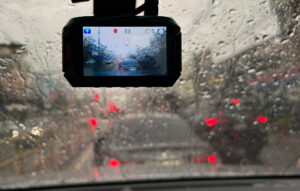In today’s world, cameras are everywhere—on street corners, in storefronts, and increasingly, on dashboards. For drivers in Southern California facing DUI charges, dash cam footage can sometimes serve as a powerful tool in building a defense. But not all footage helps your case, and in some situations, it could even hurt it.
If you’re wondering whether your dash cam video could support your DUI defense, the answer depends on what the footage shows, how it was obtained, and how your attorney uses it. Here’s what you need to know.
What a Dash Cam Might Capture
A dash camera typically records what’s happening in front of your car and sometimes inside the cabin as well. That can include:
- How you were driving prior to the traffic stop
- The conduct and statements of the arresting officer
- The administration of field sobriety tests
- Your demeanor and speech
- Any roadside interactions
This footage can potentially contradict or corroborate the officer’s report or body cam footage. In DUI cases, that can make a big difference.
When Dash Cam Footage Helps
If your footage tells a different story than the arresting officer’s version of events, it can create reasonable doubt. For example:
- Driving patterns: If the officer claims you were swerving, but the footage shows steady driving, it could weaken probable cause.
- Field sobriety tests: If the officer says you failed them, but the footage shows you performing reasonably well, it may undermine the claim of impairment.
- Officer behavior: If the video reveals aggressive or unprofessional conduct, it could call the entire stop into question.
In some cases, dash cam footage has helped get DUI charges reduced or dismissed altogether, especially when it reveals constitutional violations such as an unlawful stop or lack of probable cause.
When It Can Hurt
On the flip side, your own dash cam footage might capture behavior that strengthens the prosecution’s case:
- Slurred speech or unsteady movements
- Clear signs of intoxication
- Statements you made that suggest guilt
- Dangerous or erratic driving
Once you or your attorney introduces the footage as evidence, the prosecution can also use it. That’s why it’s important to consult with a defense attorney before voluntarily handing over any footage.
Legal Considerations for Using Dash Cam Footage
Just because you have dash cam footage doesn’t mean it’s automatically admissible in court. For the footage to be useful, it must meet certain legal standards:
- Authenticity: The footage must be verifiable and unaltered.
- Chain of custody: The recording should be stored and handled properly to avoid claims of tampering.
- Privacy laws: In California, recording audio inside your car without the other party’s consent can raise legal concerns.
A seasoned DUI attorney can determine whether the footage is admissible and if it strengthens your defense.
The Role of Your Defense Attorney
An experienced Southern California DUI defense lawyer from Law Office of Michael L. Fell can analyze your dash cam footage, compare it to the arrest report and body cam video, and determine if it supports a motion to suppress evidence, challenge probable cause, or discredit the officer’s testimony.
If the footage is damaging, a skilled attorney can also decide whether it’s best left out of your case entirely. The key is having a knowledgeable advocate who understands how to use this type of evidence strategically.
Facing DUI Charges? Don’t Go It Alone
If you've been arrested for DUI in Southern California and have dash cam footage, don’t assume it's automatically good—or bad. Let an experienced attorney at Law Office of Michael L. Fell evaluate it in the context of your entire case. The right strategy could mean the difference between a conviction and a second chance.
Call Law Office of Michael L. Fell at (949) 585-9055 today for a confidential consultation.


